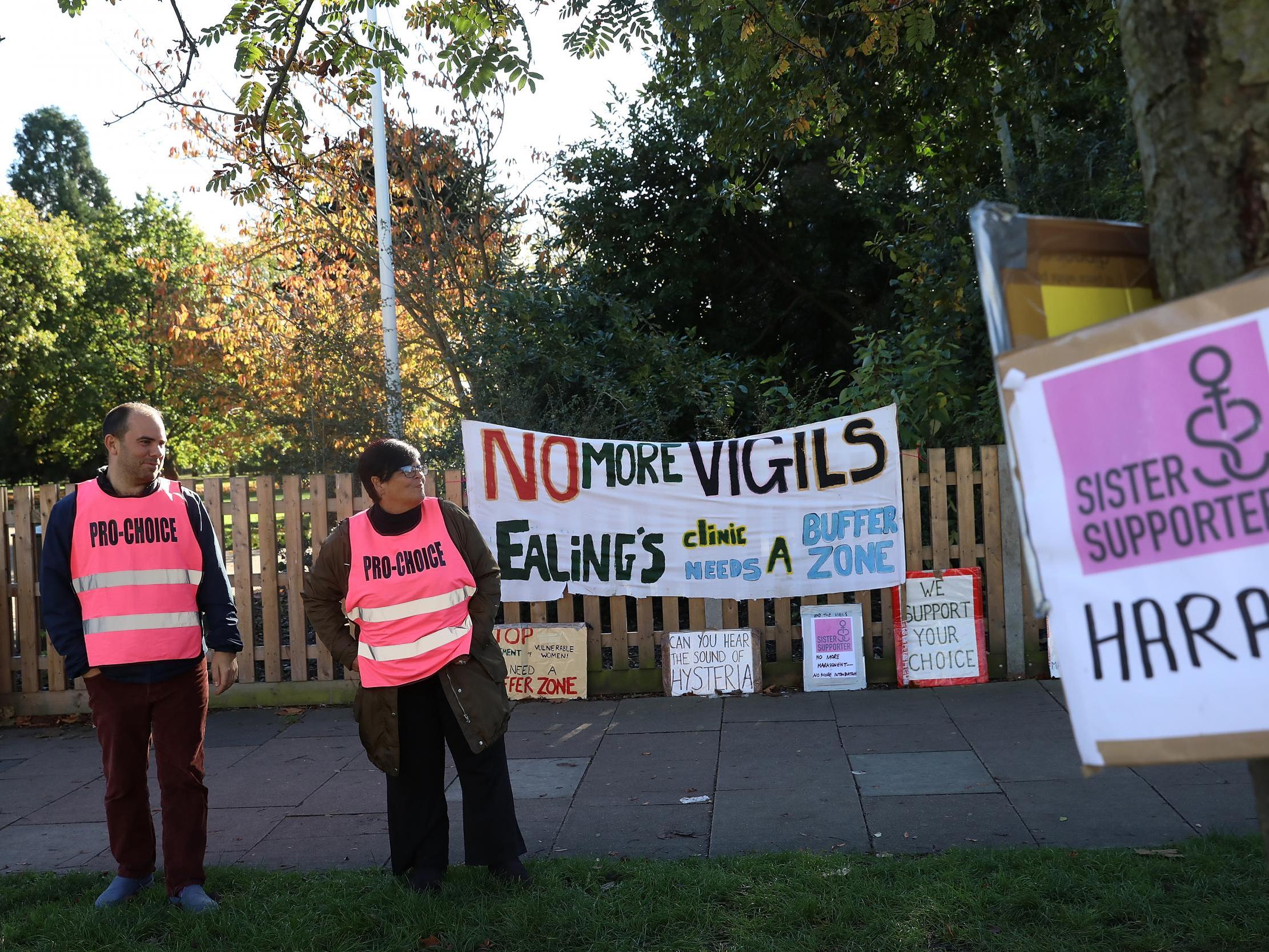‘Huge victory for reproductive rights’: MPs approve ‘buffer zones’ outside abortion clinics
‘Every year, around 100,000 women are treated by a clinic or hospital for an abortion that is targeted by anti-abortion protests,’ campaigner says

MPs have voted in favour of nationwide “buffer zones” outside abortion clinics in England and Wales in a major win for abortion providers.
A “buffer zone” stops anti-abortion protesters or any other types of demonstrators standing outside the clinic or hospital or in the near vicinity.
MPs in the Commons voted 297 to 110 in support of an amendment to the Public Order Bill, which legislates for buffer zones. MPs were given a free vote on the issue due to it being a matter of conscience.
Clare Murphy, chief executive of the British Pregnancy Advisory Service (BPAS), a leading abortion provider, said it was “delighted” politicians had voted to “protect women, protect healthcare staff, and establish buffer zones”.
BPAS has campaigned “tirelessly” for nearly 10 years to eradicate “anti-abortion clinic harassment”, she added.
These groups attempt to deter or prevent women from accessing abortion care by displaying graphic images of foetuses, calling women ‘murderers’, and hanging baby clothing around clinic entrances, causing women significant distress.
Ms Murphy said: “Every year, around 100,000 women are treated by a clinic or hospital for an abortion that is targeted by anti-abortion protests.
“These groups attempt to deter or prevent women from accessing abortion care by displaying graphic images of foetuses, calling women ‘murderers’, and hanging baby clothing around clinic entrances, causing women significant distress.
“Today’s vote will bring an end to this activity. This was truly a cross-party amendment, with support from across the house.”
The new measure implements exclusion areas around abortion clinics and hospitals – making it an offence to impede or harass women using the services or staff delivering them.
Offenders could be hit with up to six months in prison for a first offence or as long as two years if they perpetrate additional crimes, with the “buffer zone” covering 150 metres from an abortion clinic.
Louise McCudden, of MSI Reproductive Choices’ UK, another abortion provider, said the vote constituted “a huge victory for reproductive rights”.
Women will “finally be able to access the healthcare to which they are legally entitled free from intimidation and harassment”, she said.
Ms McCudden added: “For decades, our teams around the country have been forced to witness the cruel tactics of anti-abortion groups who have had a free pass to harass people attending our clinics, invade their space and attempt to block their right to healthcare.”
She noted the “landmark decision” means “at long last”, all will “have the right to access vital reproductive healthcare with safety, dignity, and privacy, no matter where in the country they happen to live”.
Stella Creasy, Labour MP for Walthamstow and outspoken campaigner for abortion rights, said: “With evidence hundreds of thousands of women every year are hassled it’s right we have a national solution for a national problem.
“It’s for them we have acted so that they can access an abortion without having to run the gauntlet of protestors to seek healthcare.
“Ministers need to act swiftly to ensure that this change is implemented and guidance published to ensure that every woman is able to enjoy the protections which have been won today.”
Local councils were already able to introduce “buffer zones” under legislation rolled out in 2014 – with Ealing Council in west London introducing the UK’s first one around an abortion clinic in 2018.
Dr Edward Morris, president of the Royal College of Obstetricians and Gynaecologists, said the move would help to remove the stigma, guilt and shame “that anti-choice organisations try to impose on women accessing this essential health service”.
Join our commenting forum
Join thought-provoking conversations, follow other Independent readers and see their replies
Comments



Bookmark popover
Removed from bookmarks